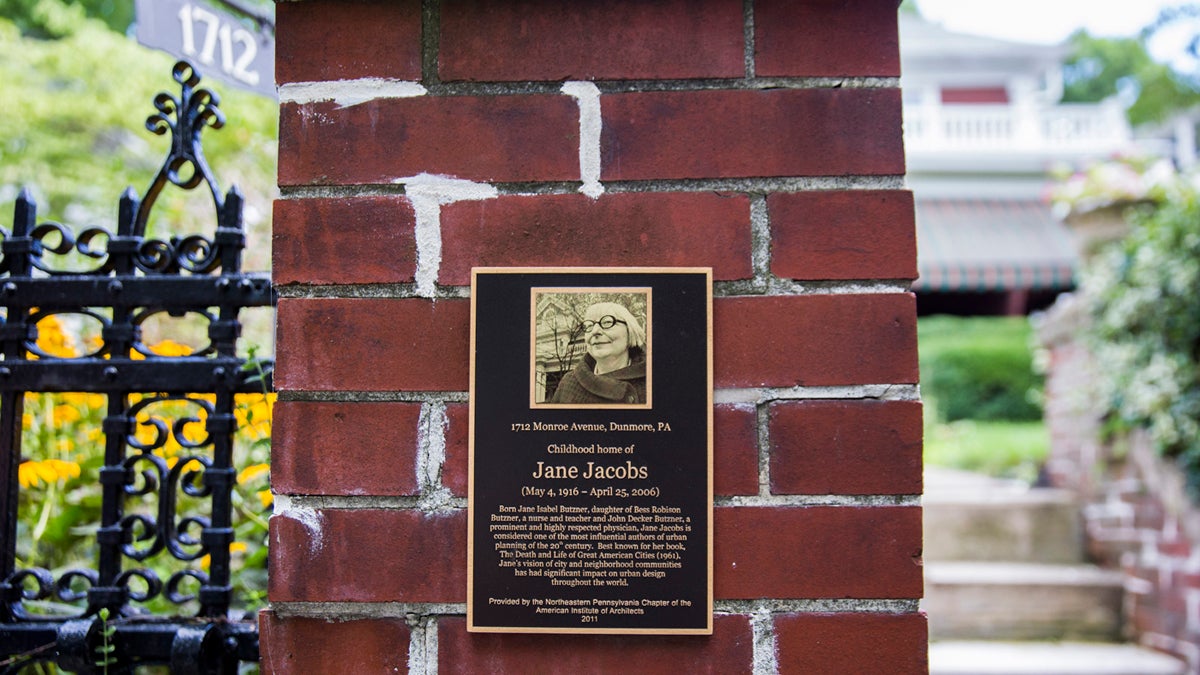In case you missed it: This week’s best reads from Pennsylvania cities

This week on Grapple we headed to Scranton
It’s Scranton week on Grapple, plus bad times, good solutions and elected officials behaving badly.
Scrannen? Scran-ton? JoeBidenton?
If your knowledge of Scranton is limited to the opening montage of NBC’s The Office, you’ve got some catching up to do. May I recommend the latest episode of Grapple, our podcast? We visit Scranton, once the biggest city in the Anthracite coal region, now at about half it’s peak population.
Scranton no doubt has a storied past — Jane Jacobs, one of the world’s foremost urban thinkers, is from there — but after decades of decline, some residents are starting to feel optimistic about the city’s future. Immigrants are moving in, and young people are moving back to raise their families (and a fair bit of heck.)
Since 1992, Scranton has been in Act 47, the state’s distressed city program. The city is in the process of paying off some big bills, like a $30 million back pay settlement to police and firefighters and overdue payments to the pension plan. Scranton has the third most underfunded pension plan in the state, after Pittsburgh and Philadelphia.
But city leaders are expecting a windfall in the near future. This week the state approved the sale of Scranton’s sewer authority to a private company, to the tune of $96 million for the city. About $65 million of that is expected to go to the pension debt. That is, assuming the state allows the authority to renew it’s permit…
This week on Grapple, we also talked with Robert Putnam, author of Bowling Alone and Our Kids: The American Dream in Crisis, about kids, dreams and crises. (Or, more specifically, how the American dream became less accessible for the average working American.)
Big problems
You know what phrase gets bandied about on the campaign trail a lot? “Economic inequality,” which some experts say is just a fancy way of avoiding the poverty discussion. But those struggling with deep poverty or working really hard and not making ends meet aren’t interested in euphemism. They want to know what the candidates plan to do on this major issue.
A lot of that poverty is hidden in plain sight in the Philadelphia suburbs. Thousands more kids are living in poverty in Montgomery, Bucks, Delaware and Chester counties than before the recession.
The state has, for decades now, been seeing demographic shifts. Pennsylvania has been getting older and more diverse, and some legislators are hoping to capitalize on those changes — or at least recognize them when they make legislative decisions.
One demographic trend — smaller high school graduation classes — is affecting the state university system. The 14-school system posted an enrollment decline for the sixth year in a row, bringing total enrollment loss since 2010 to 12 percent. That’s the lowest enrollment the system has seen since 2003.
This news isn’t great timing, as the state university faculty union prepares to go on strike on October 19th, if contract negotiations are unsuccessful.
Bigger solutions?
There’s no silver bullet, though, as they say in Kentucky, the answer may lie in a thousand silver BBs. Here are a few of the solutions we’re grooving on this week.
Want grant money for your city? Be big, be distressed and, if you can, go west. Now, obviously, you can’t pick up your city and move it over near Phoenix.
But a recent study by the Federal Reserve Banks of Philadelphia and Atlanta found that the cities that attract the most funding from large private foundations share some characteristics: they have more than 250,000 residents, they have a robust non-profit sector and are home to a private foundation themselves, they’re impoverished and they tend towards the Western half of the country.
Pay for Success sounds like a program that gives kids $5 if they get all A’s. And it sort of is, but for government programs funded with private dollars. Basically, an investor funds a social good project and, if it succeeds, the government will pay back the investment plus interest. Pennsylvania is rolling out two Pay for Success projects in 2017.
Hackers don’t sound like friends of your local government. But they can be! Civic tech groups harness the power of the internet to solve everyday city problems. They can be a solution for a cash-strapped city, but the groups are so popular, they’ve become a little overburdened themselves.
Rules, shmules
Pittsburgh’s Liberty Bridge reopened after some repair work with a new, lower weight limit. Doesn’t stop a lot of truck drivers, who are still barreling over the structurally deficient bridge without a care in the world.
The mayor of West York is in trouble after sharing racist posts on his Facebook page. The governor — along with members of the borough council and residents — has called for him to resign. But Mayor Charles Wasko has found a way to avoid all the heat: skip those censure meetings.
As he’s stumped across Pennsylvania, Republican presidential nominee Donald Trump has made it clear that he thinks the state is ripe for rule-breaking. He’s told supporters that the only way he could lose Pennsylvania is if the vote isn’t accurate, and encouraged them to sign up as poll-watchers.
Politico has said this could cause chaos on Election Day. WHYY’s Dave Davies says that’s fairly unlikely.
Either way, you don’t want to miss out on the excitement, or lack thereof. Have you registered to vote? The deadline is Tuesday!
WHYY is your source for fact-based, in-depth journalism and information. As a nonprofit organization, we rely on financial support from readers like you. Please give today.


